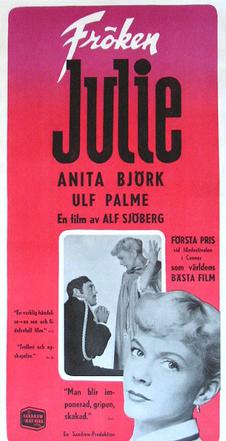| The Passion of Joan of Arc (1928 | |||
| 12:48am 10/01/2009 | |||
|
The Passion of Joan of Arc (French: La Passion de Jeanne d'Arc) is a silent film produced in France in 1928. It is based on the trial records of Joan of Arc. The film was directed by Carl Theodor Dreyer and stars Renée Jeanne Falconetti and Antonin Artaud. It is widely regarded as a landmark of cinema. Story and style The film details the last hours of the life of Joan of Arc and takes place after she was captured by the English. It depicts her trial, imprisonment, torture, and execution much as a passion play would. What especially stood out at the time when Passion was made was the film's camera-work and emphasis on the actors' facial features. Dreyer shot a great deal of the film in close-up and did not allow his actors to wear makeup, the better to tell the story through their expressions—this choice was made possible through use of the recently developed panchromatic film. Falconetti was commended for her multifaceted performance as Joan, which was her second and last movie role. Dreyer originally intended to use the new technology of sound in the making of Passion, but his funding was not sufficient, so the film is silent  Story and style The film details the last hours of the life of Joan of Arc and takes place after she was captured by the English. It depicts her trial, imprisonment, torture, and execution much as a passion play would. What especially stood out at the time when Passion was made was the film's camera-work and emphasis on the actors' facial features. Dreyer shot a great deal of the film in close-up and did not allow his actors to wear makeup, the better to tell the story through their expressions—this choice was made possible through use of the recently developed panchromatic film. Falconetti was commended for her multifaceted performance as Joan, which was her second and last movie role. Dreyer originally intended to use the new technology of sound in the making of Passion, but his funding was not sufficient, so the film is silent click to watch http://en.wikipedia.org/wiki/The_Passio |
|||
| Post | |||
| Miss Julie (1951 film) | |||
| 01:21am 10/01/2009 | |||
 Miss Julie (orig. title Fröken Julie) is a 1951 Swedish film directed by Alf Sjöberg based on the play of the same name by August Strindberg. The film won the Grand Prize at the Cannes Film Festival. Strindberg's play has twice been turned into film; a newer version was directed by Mike Figgis with Saffron Burrows in the role of Miss Julie and Peter Mullan in the role of Jean in 1999. http://www.youtube.com/user/nigelhalfwi |
|||
| Post | |||
| The Daleks' Master Plan | |||
| 12:00pm 10/01/2009 | |||
|
The Daleks' Master Plan The Daleks' Master Plan is a serial in the British science fiction television series Doctor Who. The twelve episodes (the most of any Doctor Who serial, excluding the four 1986 stories that were together called The Trial of a Time Lord) were aired from November 13, 1965 to January 29, 1966. This serial marks the final appearance of Adrienne Hill as companion Katarina, the only appearance of Jean Marsh as Sara Kingdom and the first ever death of a companion -Missing episodes Currently, only episodes 2, 5, and 10 are known to exist. All the episodes were recorded on and transmitted from magnetic videotape. Subsequently, BBC Enterprises had 16mm film telerecordings made for potential overseas sales. However, the Christmas episode "The Feast of Steven" was excluded from this and the story offered for sale was an 11-part version. The original videotapes of Episodes 1, 2, 4, 5, 7, 8 and 9 are listed among the first Doctor Who episodes ever ordered to be wiped, on 17 August 1967. At this point, "The Feast of Steven" became the first episode of Doctor Who to be seemingly lost forever. ( The Daleks' Master Plan ) |
|||
| Post | |||
| Battle of Britain (film) | |||
| 01:32pm 10/01/2009 | |||
|
Battle of Britain is a 1969 film directed by Guy Hamilton, and produced by Harry Saltzman and S. Benjamin Fisz. The film broadly relates the events of the Battle of Britain. The script by James Kennaway and Wilfred Greatorex was based on the book The Narrow Margin by Derek Wood and Derek Dempster. The film endeavoured to be an accurate account of the Battle of Britain, when in the summer and autumn of 1940 the British RAF inflicted a strategic defeat on the Luftwaffe and so ensured the cancellation of Operation Sealion – Hitler's plan to invade Britain. The huge strategic victory of the outnumbered British pilots would be summed up by Winston Churchill in the immortal words: "Never in the field of human conflict was so much owed by so many to so few". The film is notable for its spectacular flying sequences, echoing those seen in Angels One Five (1952) but on a far grander scale than had been seen on film before; these made the film's production very expensive. It is shown regularly on British television  probably one of the best war movies ever made |
|||
| Post | |||
| Barbarella (1968) in the Excessive Machine | ||||
| 05:43pm 10/01/2009 | ||||
|
||||
| Post | ||||
| you_tube_links | ||
|
Recent Entries Friends Info Calendar | ||
| days | ||
| Previous Next |
||